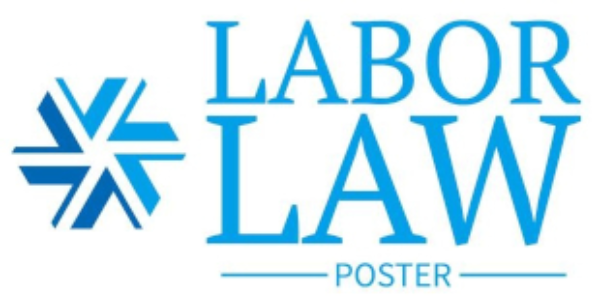Essential Guide to Labor Law Poster Compliance for Businesses
-
Posted by
admin
Labor Law Poster Compliance: A Guide for Businesses

Introduction
In today’s rapidly evolving business landscape, adhering to labor law compliance is more critical than ever. Among the myriad of regulations, labor law poster compliance stands out as a cornerstone of workplace legality and fairness. This comprehensive guide seeks to illuminate the significance of this compliance, explore the consequences of non-compliance, and offer actionable advice to businesses on maintaining up-to-date labor law posters.
Understanding Labor Law Posters
Understanding Labor Law Posters
Labor law posters are not merely decorative items for the workplace; they are a pivotal element of compliance with federal and state labor laws. These posters serve to inform employees about their rights and protections under various labor regulations, including minimum wage laws, the Occupational Safety and Health Act (OSHA), the Family and Medical Leave Act (FMLA), and equal employment opportunity laws.
The requirements for these posters vary by state, industry, and the size of the business, making it essential for employers to understand and fulfill their specific obligations.
The Importance of Compliance
Legal and Financial Ramifications
Non-compliance with labor law poster requirements can lead to significant legal and financial repercussions for businesses. Regulatory agencies can impose fines, penalties, and even legal action against companies that fail to display the required information. Beyond the immediate financial impact, non-compliance can tarnish a company’s reputation, affecting its relationship with employees, clients, and the general public.
Enhancing Workplace Transparency and Trust
Properly displayed labor law posters play a crucial role in fostering a transparent and trusting workplace environment. They ensure that employees are well-informed about their rights and the resources available to them, promoting a culture of fairness and mutual respect.
Navigating Common Compliance Challenges
Staying Current with Changing Regulations
The legal landscape regarding labor laws is ever-changing. Keeping abreast of the latest requirements and ensuring that labor law posters are current can be a daunting task for businesses. To tackle this challenge, companies can leverage subscription-based services that provide updated posters whenever there are changes in the law.
Addressing the Needs of a Diverse Workforce
Modern workplaces often encompass multiple locations and a mix of on-site and remote employees. Ensuring that all employees, regardless of their work arrangement, have access to the required labor law information necessitates a strategic approach. Employers may need to adopt digital distribution methods or ensure that remote workers receive physical copies of the relevant posters.
Implementing Best Practices for Compliance
Regular Compliance Audits
Conducting regular audits of labor law posters is a proactive measure that can safeguard against non-compliance. This process involves verifying the presence and currency of all required posters and ensuring they are conspicuously displayed for all employees.
Leveraging Expert Resources
Navigating the complexities of labor law compliance can be overwhelming. Collaborating with professional services specializing in labor law posters can provide businesses with peace of mind and freedom to focus on their core operations. These services offer not only up-to-date posters but also guidance on compliance strategies.
Cultivating a Culture of Compliance
Building a culture that prioritizes legal compliance and ethical business practices begins at the top. Business leaders and managers should champion the importance of labor law poster compliance and encourage an organizational ethos that values legal adherence and employee rights.
What is a labor poster compliance?
What is a labor poster compliance?
Labor poster compliance refers to the legal requirement for employers to display federal and state labor law posters in a prominent and accessible place within the workplace. These posters inform employees of their rights and protections under various labor laws, including minimum wage, workplace safety, discrimination laws, and family leave policies. Ensuring labor poster compliance is crucial for businesses to avoid legal penalties, foster a transparent work environment, and uphold the rights of their employees. By staying updated with the latest labor law changes and requirements, companies can maintain labor poster compliance, demonstrating their commitment to legal adherence and employee welfare.
Is the employer required by the FLSA to display a poster?
Yes, the Fair Labor Standards Act (FLSA) requires employers to display an official poster outlining the provisions of the FLSA. This poster must be placed in a conspicuous location in the workplace where all employees can easily view it, such as break rooms or common areas. The FLSA poster provides essential information on federal minimum wage, overtime pay, child labor laws, and the rights of employees under the FLSA. Displaying this poster is a part of labor poster compliance, ensuring that employees are aware of their rights and employers fulfill their legal obligations. Non-compliance with this requirement can result in penalties, making it imperative for employers to stay informed and compliant with FLSA poster display regulations.
Where to buy labor law poster?
You can get a Labor law poster. Here
Labor law poster compliance is not a mere legal formality; it is a fundamental aspect of ethical business operation and employee engagement. By understanding the requirements, addressing the challenges, and implementing strategic best practices, businesses can ensure compliance, foster a positive workplace culture, and protect themselves from potential legal and financial penalties. Remember, a well-informed workforce is an empowered workforce, and compliance with labor law poster requirements is a critical step in supporting and respecting your employees’ rights.

